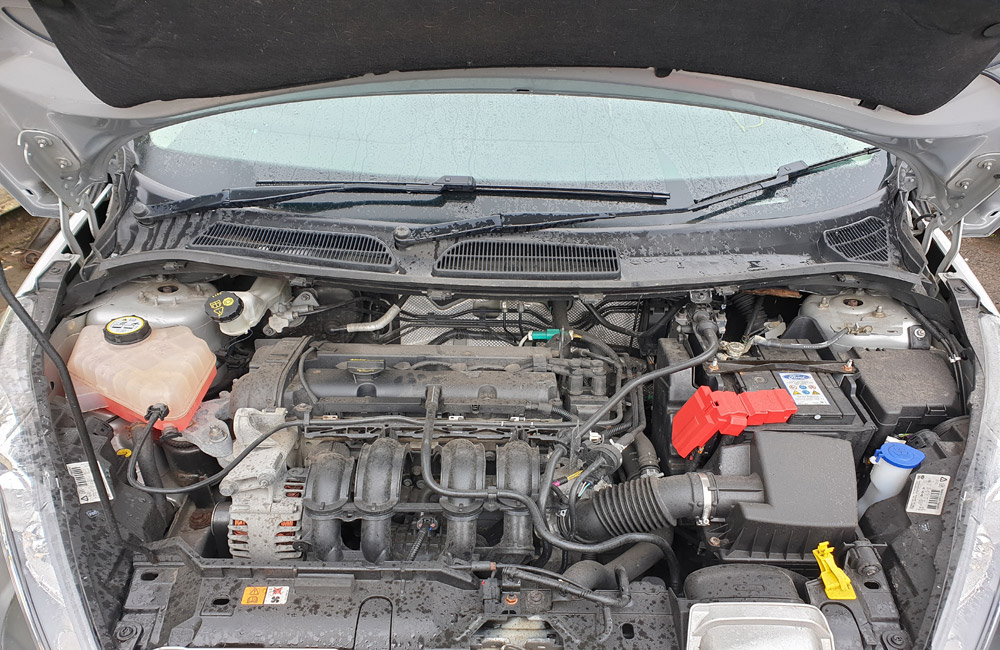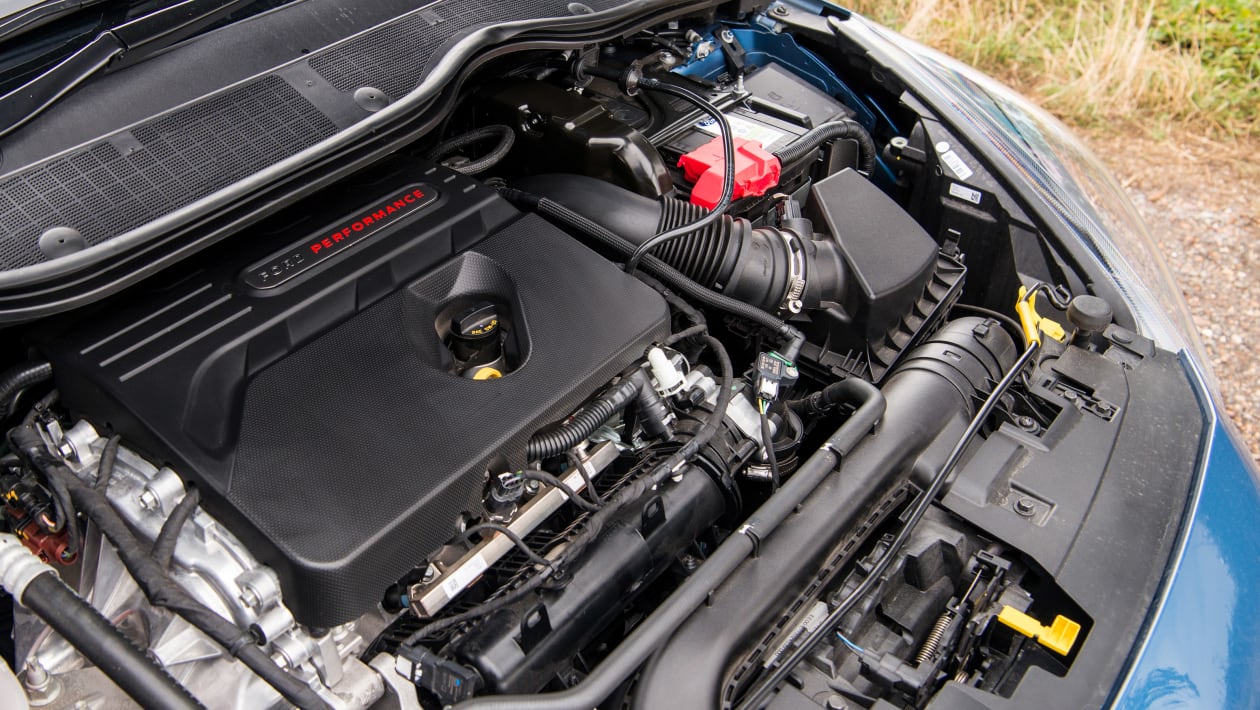The Future of Engines: Developments Driving Lasting Power Solutions
As the vehicle sector browses the critical transition towards sustainability, the future of engines is significantly specified by groundbreaking innovations. Electric engine developments, together with appealing advancements in hydrogen fuel cells and biofuels, are reshaping the landscape of power services. The emergence of crossbreed systems better complicates this advancement, presenting both opportunities and difficulties to reduce emissions efficiently. Combined with the assimilation of expert system in engine layout, these technological strides increase essential inquiries about their long-term practicality and effect on conventional standards. What might this suggest for the industry and consumers alike?
Electric Engine Dope
The advancement of electrical engine advancements signifies an essential shift in the automobile and aerospace markets, driven by the immediate requirement for sustainable options to nonrenewable fuel sources. This transition is characterized by substantial innovations in battery technology, power electronic devices, and electrical motor style, which jointly boost the effectiveness and efficiency of electric engines.
Recent advancements have resulted in the production of lighter, more energy-dense batteries, such as lithium-silicon and solid-state batteries, which guarantee longer arrays and shorter billing times. In addition, improvements in electrical motor effectiveness, such as the usage of long-term magnets and advanced cooling down systems, make it possible for electrical engines to operate properly under varying conditions. These improvements not just enhance car efficiency yet additionally contribute to a decrease in total energy consumption.
Moreover, the integration of innovative software formulas has enhanced power management in electric automobiles, permitting regenerative stopping and predictive billing strategies. As producers significantly welcome electrical propulsion, the auto and aerospace fields are experiencing a standard change in the direction of greener technologies. This advancement not only meets regulatory needs yet also aligns with consumer choices for eco-friendly transport remedies, solidifying electric engines as a foundation of future lasting flexibility.
Improvements in Biofuels
As the aerospace and auto industries progressively focus on lasting energy sources, developments in biofuels emerge as a complementary service to electric engines. Biofuels, originated from organic products such as plants, waste, and algae, present an ingenious avenue for minimizing greenhouse gas emissions and dependence on nonrenewable fuel sources.
Recent study has concentrated on enhancing the effectiveness and sustainability of biofuel production. Second-generation biofuels utilize non-food feedstocks, reducing competitors with food supply and lowering ecological impact. In addition, developments in synthetic biology have actually made it possible for the engineering of microbes to produce biofuels extra successfully, bring about higher returns and lower production costs.
Furthermore, the development of drop-in biofuels allows for smooth combination right into existing infrastructure, making it possible for a smoother change for sectors commonly based on nonrenewable fuel sources. ford fiesta engine. These fuels can be used in present engines without modifications, facilitating their fostering across numerous sectors
Investments in biofuel modern technology, along with helpful policies, are vital to drive development and scalability. As the international area looks for to battle environment change, biofuels offer a pragmatic, immediate service that aligns with the overarching goal of sustainability in transport and aviation.
Hydrogen Fuel Cell Innovation
A growing number of researchers and business are checking out hydrogen gas cell innovation as a viable choice to traditional power resources in transport and power systems. This innovation converts chemical power from hydrogen right into power with an electrochemical response, with water as the only result, making it an eco-friendly choice.
The core of hydrogen fuel cells is the gas cell pile, where hydrogen molecules are split right into protons and electrons. The circulation of electrons creates electrical energy, while protons move through a membrane to combine with oxygen from the air, developing water. This procedure causes high effectiveness and low emissions, placing hydrogen gas cells as a crucial player in the change to lasting energy.
Considerable improvements have actually been made in improving the longevity and effectiveness of gas cells, alongside lowering prices via cutting-edge production methods. The development of hydrogen manufacturing approaches, such as electrolysis powered by renewable power sources, boosts the sustainability of the general system. As facilities for hydrogen refueling expands and manufacturing approaches come to be extra effective, hydrogen gas cell modern technology holds terrific promise for decarbonizing different markets, including heavy-duty transportation and fixed power generation.
Hybrid Equipments and Their Effect
Crossbreed systems stand for a significant go to this web-site advancement in sustainable engine technology, combining typical interior burning engines with electrical propulsion to maximize energy effectiveness and reduce exhausts (ford fiesta engine). This twin technique enables cars to utilize both source of power, allowing higher flexibility in energy usage and decreasing reliance on nonrenewable fuel sources

In addition to ecological advantages, hybrid systems use customers a sensible change Continue in the direction of totally electric cars. They minimize range stress and anxiety by combining the convenience of fuel with the benefits of electrical propulsion, making them an attractive alternative for a larger target market.
The Role of AI in Engine Style
Leveraging advanced algorithms and artificial intelligence methods, the automotive industry is significantly integrating expert system (AI) into engine design procedures. AI boosts the effectiveness and effectiveness of style by analyzing large datasets to recognize ideal setups and performance criteria. This capacity allows designers to replicate different operating conditions and predict engine actions under several scenarios, considerably minimizing the moment and expense connected with traditional prototyping approaches.
In addition, AI assists in the advancement of sophisticated products and combustion procedures tailored for sustainability. By maximizing gas performance and lessening exhausts, AI-driven styles line up with worldwide campaigns targeted at reducing the carbon footprint of automobile engines. Equipment knowing algorithms can also predict maintenance demands, causing boosted dependability and durability of engine parts.
Moreover, AI is crucial in the assimilation of electrification modern technologies, such as crossbreed systems, where it can optimize battery management and energy recuperation processes. As the sector moves in the direction of more sustainable power solutions, the role of AI in engine design comes to be progressively vital, driving development and boosting the efficiency of future engines. Ultimately, the cooperation in between AI and engine design heralds a brand-new period of smarter, cleaner, and more effective automobile technologies.

Final Thought
In conclusion, the future of engines is being shaped by a merging of innovative technologies that focus on sustainability. Electric engine developments, biofuel developments, hydrogen fuel cells, and hybrid systems collectively contribute to a significant decrease in discharges and environmental impact. Additionally, the combination of expert system in engine layout enhances efficiency and performance. These transformative solutions underscore a dedication to creating a cleaner, a lot more lasting automotive landscape, ultimately benefiting both society and the atmosphere.
Electric engine advancements, alongside promising growths in hydrogen gas cells and biofuels, are reshaping the landscape of power remedies. Additionally, renovations in electric motor efficiency, such as the usage of long-term magnets and advanced cooling down systems, allow electrical engines to run effectively under differing conditions. By enhancing fuel efficiency and decreasing emissions, AI-driven styles straighten with global initiatives intended at minimizing the carbon impact of automotive engines. As the market relocates in the direction of even more sustainable power services, the duty of AI in additional hints engine style ends up being progressively essential, driving innovation and boosting the efficiency of future engines. Electric engine developments, biofuel advancements, hydrogen fuel cells, and hybrid systems collectively contribute to a considerable reduction in discharges and environmental impact.